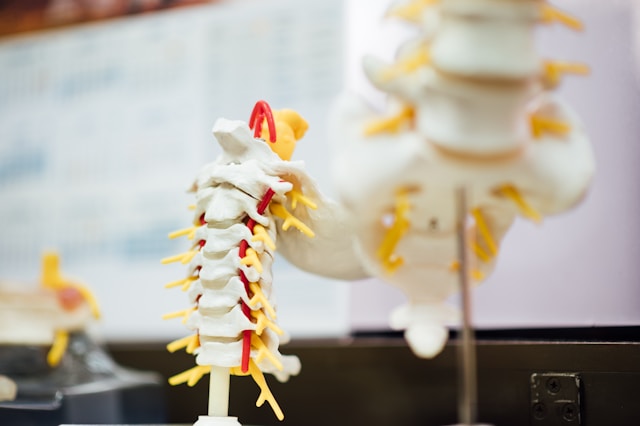Adjusting to life after a spinal cord injury (SCI) is a journey that involves physical, emotional, and social changes. SCIs can be life-altering, but they don’t have to define your future. With the right support system, medical care, and mindset, individuals with spinal cord injuries can rebuild fulfilling, productive lives. This blog explores strategies for navigating life after a spinal cord injury, from managing physical health to addressing emotional well-being and fostering a strong community network.
Understanding Spinal Cord Injuries
A spinal cord injury occurs when damage to the spinal cord disrupts communication between the brain and body. Depending on the severity and location of the injury, individuals may experience partial or complete loss of motor function and sensation below the injury site.
SCIs are classified as:
- Incomplete: Partial communication remains, resulting in varying degrees of movement and sensation.
- Complete: All communication is lost below the injury, leading to total paralysis in affected areas.
Adapting to life after an SCI often depends on the injury’s impact, the level of independence a person regains, and access to appropriate resources.
Physical Rehabilitation And Health Management
Rehabilitation is a cornerstone of recovery, helping individuals regain as much mobility and independence as possible. Legal experts handling injury cases typically see spinal injury victims seek the following types of therapy:
- Physical therapy: Focused on strengthening muscles, improving mobility, and developing alternative movement strategies.
- Occupational therapy: Teaches daily living skills, such as dressing, cooking, and using assistive devices.
Work closely with your medical team to create a personalized rehabilitation plan tailored to your abilities and goals. Also, staying healthy while recovering is important to avoid secondary health issues. SCIs can increase the risk of health complications such as pressure sores, urinary tract infections, and respiratory issues. Preventative care is essential such as:
- Regularly shifting positions to avoid pressure ulcers.
- Staying hydrated and following a bladder and bowel management plan.
- Practicing deep-breathing exercises to strengthen the respiratory system.
Staying physically active with various forms of exercise remains crucial after an SCI. Adaptive sports and recreational activities like wheelchair basketball, swimming, or hand cycling promote fitness, improve mental health, and foster a sense of accomplishment. Many communities have organizations dedicated to accessible sports programs.
Emotional And Mental Health Support
- Acknowledge the Emotional Impact: Adjusting to an SCI often involves grieving the loss of abilities or plans for the future. Feelings of anger, sadness, or anxiety are normal. Allow yourself to process these emotions while focusing on your strengths and possibilities.
- Seek Professional Help: Counseling or therapy can provide valuable tools for coping with the emotional challenges of an SCI. A mental health professional can help address issues such as: depression or anxiety, body image concerns, relationship challenges.
- Build Resilience: Fostering a resilient mindset can help you navigate the ups and downs of recovery. Focus on achievable goals, celebrate small victories, and practice gratitude for the progress you make each day.
Modifying Your Environment For Independence
Creating an accessible environment can make daily living tasks easier and foster a greater sense of independence:
- Install ramps, grab bars, and adaptive devices in your home.
- Explore wheelchair-friendly vehicles for transportation.
- Use assistive technology, such as voice-activated devices, to simplify tasks.
Organizations specializing in SCI support often offer resources and grants to help cover the costs of home modifications and assistive equipment.
Rebuilding Your Social Life
- Maintain Connections: Isolation can be a significant challenge after an SCI, but staying connected with family and friends is vital for emotional well-being. Don’t hesitate to communicate your needs and involve loved ones in your journey.
- Explore Community Resources: Many communities offer SCI support groups, adaptive sports leagues, and social organizations. These groups can help you build new relationships, find mentors, and participate in activities that enrich your life.
- Advocate for Yourself: As you reintegrate into social and professional settings, advocating for your needs and rights is essential. Whether it’s requesting accommodations at work or pushing for more accessible public spaces, your voice matters.
Setting New Goals And Pursuing Fulfillment
An SCI may change your path, but it doesn’t eliminate the possibility of a fulfilling life. Pursuing new hobbies, education, or career goals can instill a sense of purpose and accomplishment. Many individuals with SCIs discover untapped talents or passions during their recovery journey.
Consider setting both short-term and long-term goals, such as learning a new skill, participating in an adaptive sport, or working towards career advancement. Every step forward is a testament to your resilience.
Life after a spinal cord injury presents unique challenges, but it’s also an opportunity to explore new possibilities and discover your strength. By prioritizing physical rehabilitation, embracing emotional support, and fostering connections, you can build a life filled with purpose and joy.
Remember, you’re not alone—countless resources and communities are ready to support you every step of the way. Reach out, stay hopeful, and continue moving forward one step at a time. Your journey is yours to shape.
